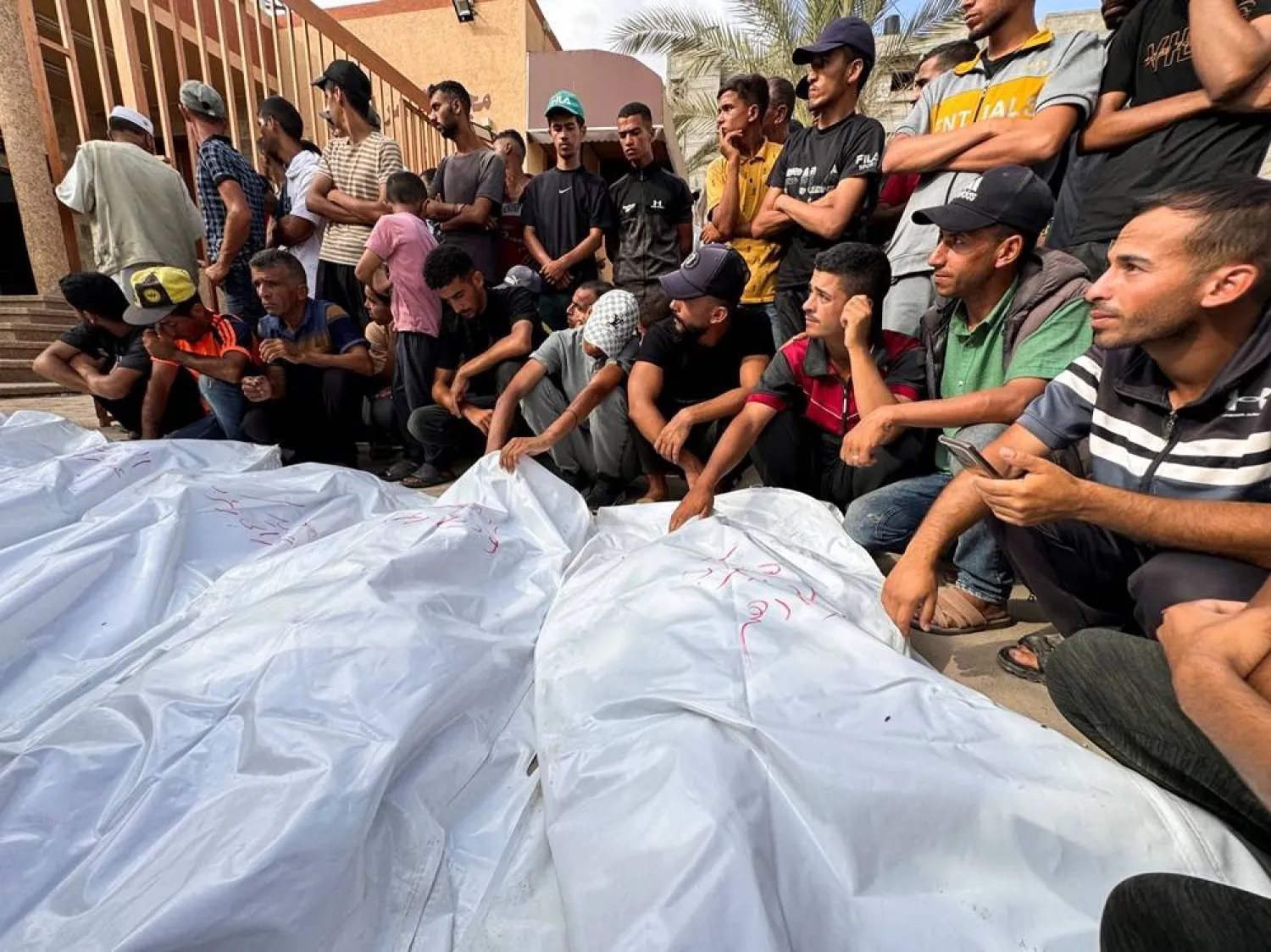Israeli forces advanced further on Sunday into the Shejaia neighborhood of northern Gaza and also pushed deeper into western and central Rafah in the south, killing at least six Palestinians and destroying several homes, residents said.
Israeli tanks, which moved back into Shejaia four days ago, fired shells towards several houses, leaving families trapped inside and unable to leave, the residents said.
The Israeli military said forces operating in Shejaia had over the past day killed several Palestinian gunmen, located weapons, and struck military infrastructure. On Saturday it announced the death of two Israeli soldiers in northern Gaza.
The armed wing of Hamas and the allied Islamic Jihad reported fierce fighting in both Shejaia and Rafah, saying their fighters had fired anti-tank rockets and mortar bombs against Israeli forces operating there.
More than eight months into Israel's air and ground war in Gaza, gunmen continue to stage attacks on Israeli forces, operating in areas that the Israeli army said it had gained control over months ago.
Arab mediators' efforts, backed by the United States, have so far failed to secure a ceasefire. Hamas says any deal must end the war and bring a full Israeli withdrawal from Gaza. Israel says it will accept only temporary pauses in the fighting until Hamas, which has governed Gaza since 2007, is eradicated.
RAFAH DEATHS
In Rafah, near the border with Egypt, Israeli tanks pushed deeper into several districts in the east, west and center of the city, and medics said six people had been killed in an Israeli strike on a house in Shaboura, in the heart of the city.
The six bodies from the Zurub family were transferred to Nasser Hospital in the nearby city of Khan Younis. On Sunday, dozens of relatives paid their respects before the bodies, which were wrapped in white shrouds, and then carried them in their arms to prepared graves.
Residents said the Israeli army had torched the Al-Awda mosque in the center of Rafah, one of the city's best-known.
Israel has said its military operations in Rafah are aimed at eradicating the last armed battalions of Hamas.
The Israeli military said on Sunday its forces continued "targeted, intelligence-based" operations in Rafah, killing several gunmen in different encounters and dismantling tunnels.
The latest Gaza war erupted when Hamas-led fighters stormed into southern Israel on Oct. 7, killing around 1,200 people and seizing more than 250 hostages, according to Israeli tallies.
Israel's retaliatory offensive has so far killed nearly 38,000 people, according to the Gaza health ministry, and has left the heavily built-up coastal enclave in ruins.
The Gaza health ministry does not distinguish between combatants and non-combatants but officials say most of the dead are civilians. More than 300 Israeli soldiers have been killed in Gaza and Israel says at least a third of the Palestinian dead are fighters.









